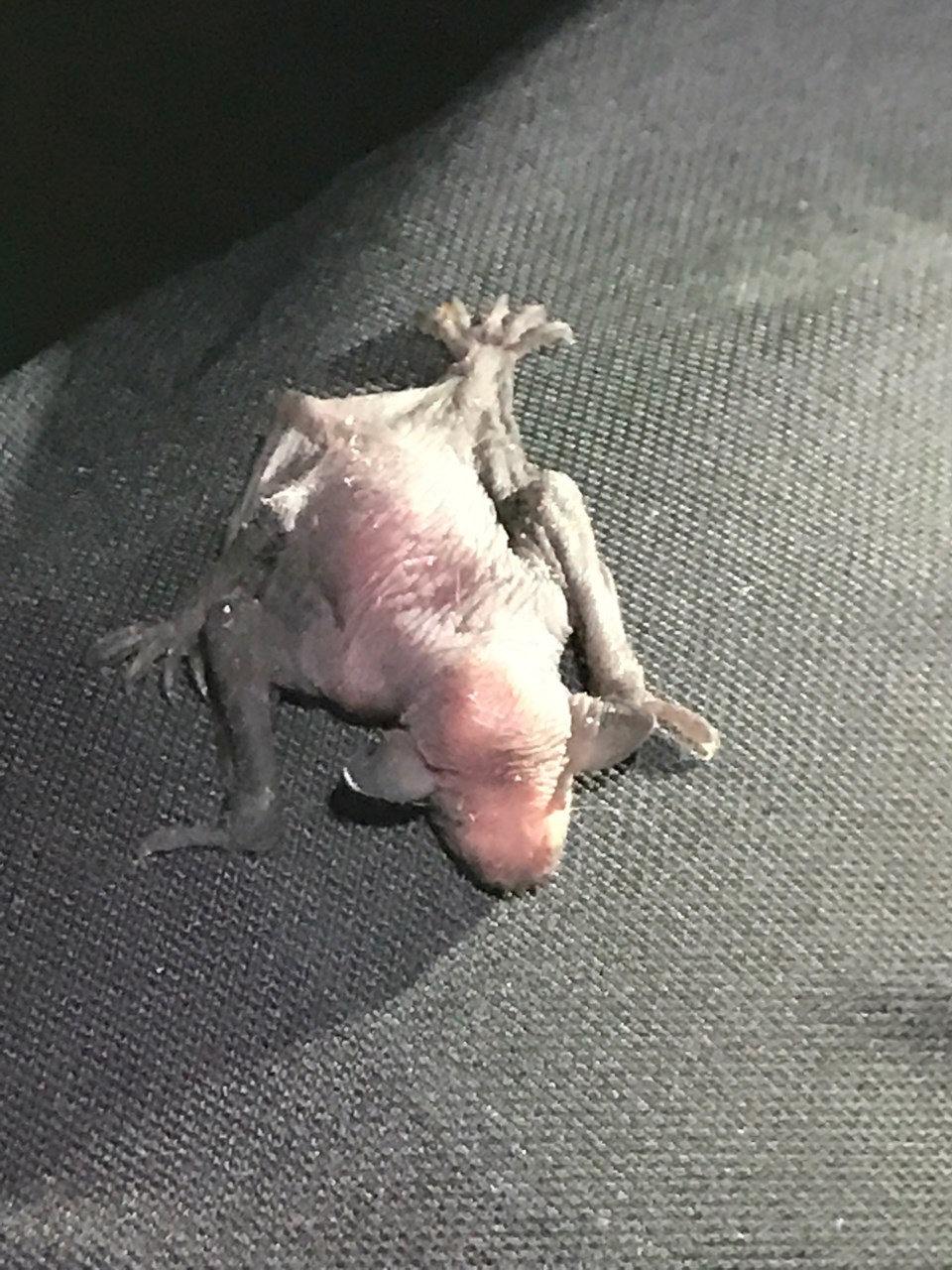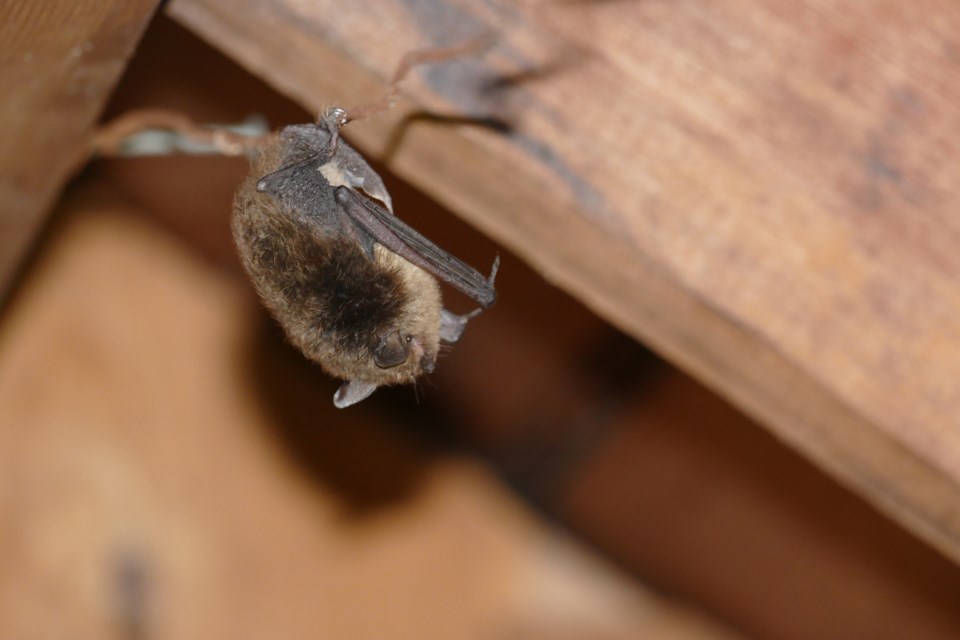If you’ve been seeing bats around your home, you’re not the only one.
Surprise visits from bats are common this time of year. Baby bat “pups” are just learning to fly, and you might see them practising their insect-hunting skills around your property.
Some might even unintentionally find their way into your house. If you see one, don’t panic.
“The young are new to echolocation and may accidently fly into your house as they learn to orient themselves,” Danielle Dagenais, a biologist and coordinator with the B.C. Community Bat Program for the Greater Vancouver-Squamish region, said in a press release. “Don’t be [alarmed], they will find their way out if you leave a window or door open for them.”
Female bats gather in maternity colonies in early summer where they stay with their babies until they’re ready to fly. Some bats have adapted to living in human structures, such as under roofs or siding, in attics, barns and other buildings.
While some see having bats as a benefit for insect-control, others may want help removing them. The BC Wildlife Act makes it illegal to exterminate or harm bats. Bat exclusion – using devices to deter bats from nesting – is only allowed in the fall and winter once the bats are no longer in the building.
But the B.C. Community Bat Program wants to help you find the resources and support you need. You can visit bcbats.ca or call 1-855-9-BC-BATS ext. 11 for more information on how to remove bats, report bat sightings, or get advice and support for dealing with them on your property.
They also ask that you report any bat deaths in colonies in houses, barns or bat houses. Don’t touch a dead bat with your bare hands. They can contract rabies. If you or your pet have been bitten or scratched by a bat, talk to your doctor or veterinarian.




